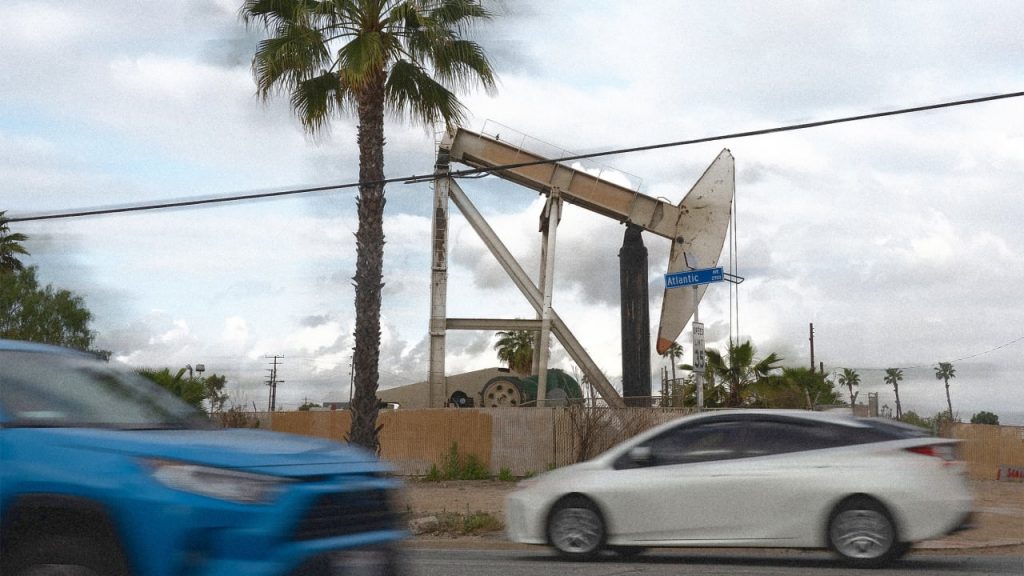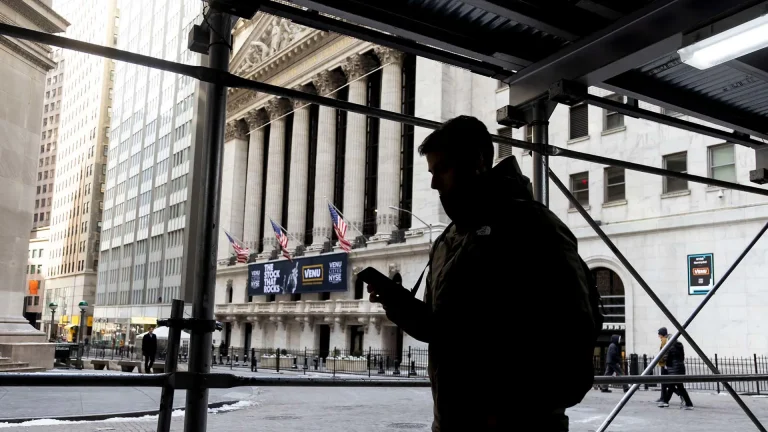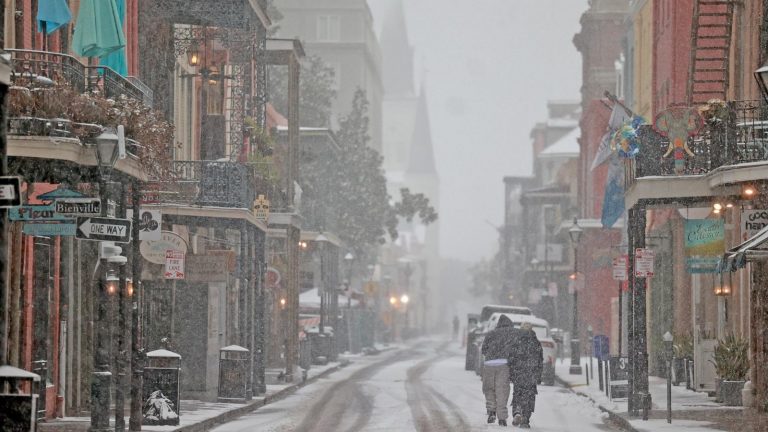
The damage and economic loss from the Los Angeles-area fires could be more than $250 billion, by one estimate. Insurers and the government will foot some of the bill. But some climate advocates argue that fossil fuel companies should also help cover part of the cost.
The fires are renewing calls for a climate superfund law for the state—similar to laws that recently passed in both Vermont and New York. “The way a climate superfund bill works is it assigns a fee to the largest fossil fuel emitters to pay their fair share of the damage that’s been caused by their products,” says Kassie Siegel, director of the Climate Law Institute at the nonprofit Center for Biological Diversity. “Oil, gas, and coal are overwhelmingly responsible for the climate crisis.”
Superfund laws require that major polluters (in New York, for example, that’s defined as fossil fuel companies responsible for emitting at least a billion metric tons of CO2 over roughly the last two decades) pay a fee that’s calculated based on their total emissions. The money goes into a fund that can be used for projects that help deal with climate change, from wetlands restoration to funding new stormwater infrastructure or repairing damage after specific disasters.
The vast majority of emissions since the Industrial Revolution have been caused by fossil fuels, and it’s possible to link those emissions directly to climate disasters. One 2023 study found that emissions from the world’s largest fossil fuel companies were responsible for 37% of the damage in forests that have burned in the Western U.S. and Canada over the past four decades. A process called climate attribution also makes it possible to link specific events like a flood, drought, heat wave, or wildfire to climate change.
With an event like the L.A. fires, “we can look at the weather conditions that make an event like this more likely, and attribute a percentage of those to climate change,” says Kristina Dahl, vice president for science at the nonprofit Climate Central. An academic collaboration called World Weather Attribution has performed dozens of attribution studies over the last decade.
Climate change isn’t the only factor in a wildfire. The Eaton Fire, for example, might have been sparked by a power line; investigations are still underway. If the local utility is responsible, it may be forced to pay victims directly. The intense wind that drove the fires hasn’t been linked to climate change. But the fact that L.A. hadn’t had rain in months—despite it being the rainy season—allowed the fire to be more destructive. Record rain the previous year meant that there was more vegetation to burn. This type of weather whiplash is becoming much more common because of climate change.
The concept of making companies pay for the environmental damage they’ve caused has precedent. The federal Superfund program taxes the chemical and oil industries to create a fund to clean up hazardous waste sites. In California, another law makes the petroleum and paint industries pay a fee for the damage caused by lead pollution. That program “was upheld multiple times against industry challenges,” says Siegel. “The fund still exists today, helping victims of childhood lead poisoning.”
California is separately suing oil companies for deceiving the public about the health and environmental damage caused by burning fossil fuels. If a climate superfund law is enacted, it would be in addition to the ongoing lawsuit. It’s also separate from policies that aim to reduce emissions.
“It is not a substitute for the many, many important policies that [reduce emissions],” says Siegel, noting that climate superfund laws are based on the idea that “right now taxpayers are shouldering 100% of the burden of climate disasters. [These bills say] that the corporate polluters who drove climate change with their products need to contribute their fair share to pay for the damage, and take some of that burden off of taxpayers. These corporations have immense profits from fossil fuels that have driven the problem. Chevron and Exxon alone [saw] $72 billion and $114 billion in the last three years of reporting.”
When lawmakers in California introduced a superfund bill last year, it didn’t move forward, but it’s likely to be introduced again in the coming weeks. The law in California could potentially recover tens or hundreds of billions of dollars for the state, paid in installments over 20 years. The law would cover damages for a set period—for example, from 1990 to 2045. If it passes soon, some of the funds could be used for the long process of rebuilding Pacific Palisades and other neighborhoods that burned in the current fires. Of course, the fossil fuel industry will fight it. In Vermont, where a climate superfund bill did pass in 2024, the fossil fuel industry is already suing the state.
“The fossil fuel industry is extraordinarily wealthy and extraordinarily litigious, and so it’s not a surprise that they’ve challenged it, because they challenge everything,” Siegel says. “But these superfund laws are on very solid ground legally.”






